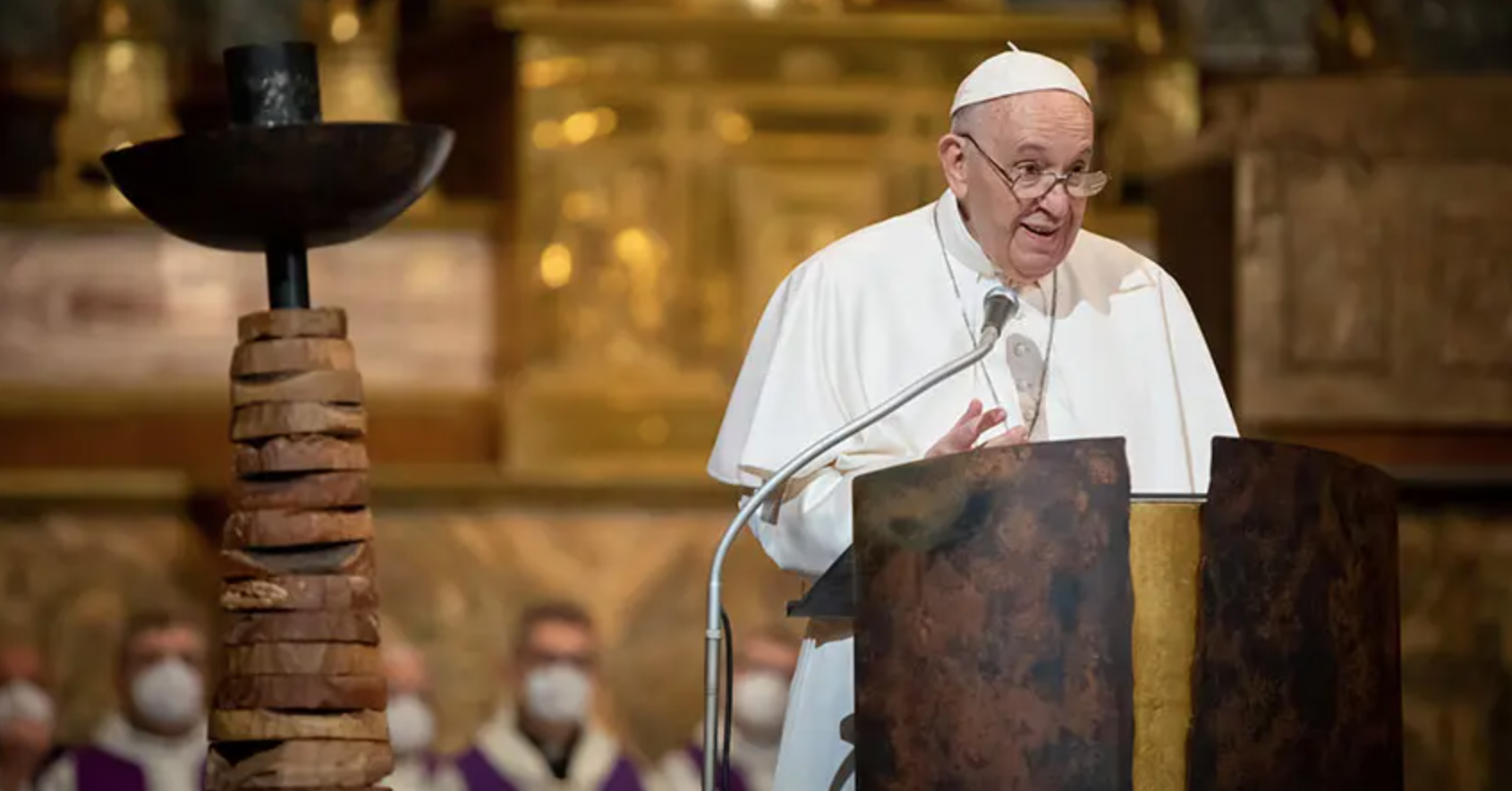
21 Mar March 2022 Reflection – Michael McFarland SJ
A Celebration of Sainthood
This month on March 12 the Society of Jesus celebrated the 400th anniversary of the canonization of St. Ignatius Loyola and St. Francis Xavier, along with three other great saints, St. Teresa of Avila, St. Philip Neri and St. Isadore the Farmer. The occasion was marked by a Mass at the Gesu Church, where St. Ignatius is buried. Pope Francis joined the community at the Mass and preached the homily.
In reflecting on the Gospel for that day, which was Luke’s account of the Transfiguration, the Pope talked about how God’s call to holiness brings us together in community and lifts us out of our comfortable mediocrity. Jesus took the disciples Peter, James and John together to the top of the mountain. That means “our vocation is grounded in communion…. We belong to Jesus, and we belong to him as a Society. Let us never tire of asking for the strength to form and foster communion…. We are not soloists in search of an audience, but brothers arranged as a choir.” Therefore it is important that we learn to “think with the Church” and avoid both “a clericalism that leads to rigidity or an ideology that leads to divisiveness.” Putting the community, as manifest in the Church, above our own interests and ambitions is an essential part of discipleship.
At the same time, Jesus leads the disciples on a “strenuous ascent” away from the “plains of mediocrity and the foothills of convenience” to the top of the mountain, which symbolizes “the border between heaven and earth where men and women ‘confront’ God with their difficulties, so that we in turn can accompany them in their restless seeking and their religious doubt.” Rather than staying put, as Peter proposed, in “static faith,” we must “move beyond ourselves,… to realize that Jesus also reveals himself through the wounds of our brothers and sisters, the struggles of humanity,” which are “the wounds of the Lord.”
There is a tension between loyalty to the Church, with its deeply-rooted structures, teachings and traditions, and the imperative always to go beyond and be with people in their struggles, doubts and challenges. St. Ignatius lived that tension. He always sought to serve Christ in the Church, yet also sought to free it of the mediocrity and self-seeking that he found there, especially by forming a spirituality that was centered on Christ, always open to the Spirit and rooted in human experience. That often exposed him to suspicion and opposition from Church authorities. He always remained loyal and respectful, but also true to his mission of renewal, learning from each encounter how to refine his insights and bring them into conformity with Church teachings. St. Francis Xavier, in his unprecedented missionary journeys, was always pushing outward and onward, bringing the fullness of the faith to new peoples and places, but always adapting it to the culture, language and experience of the people he encountered.
Those first Jesuits and their companions early on grasped the importance of education as an instrument for this work. It provided a uniquely effective platform for deepening the knowledge of the faith and passing it on to others while constantly rethinking it, exploring new questions and insights and bringing it into dialogue with human experience. That was the origin of the Roman College, now the Gregorian University. For 470 years it has continued that mission. Located and operating at the center of the Church in Rome, with faculty who often work with the Vatican, it is a faithful witness to the tradition and teaching of the Church, while always going deeper, asking new questions, and bringing new experiences and insights. In the spirit of St. Francis Xavier, its faculty and students come from every part of the world and contribute their diverse issues, insights, histories and experiences, while preparing to bring the riches of the Church back to their own communities.
Michael C McFarland, SJ
President, Gregorian University Foundation



